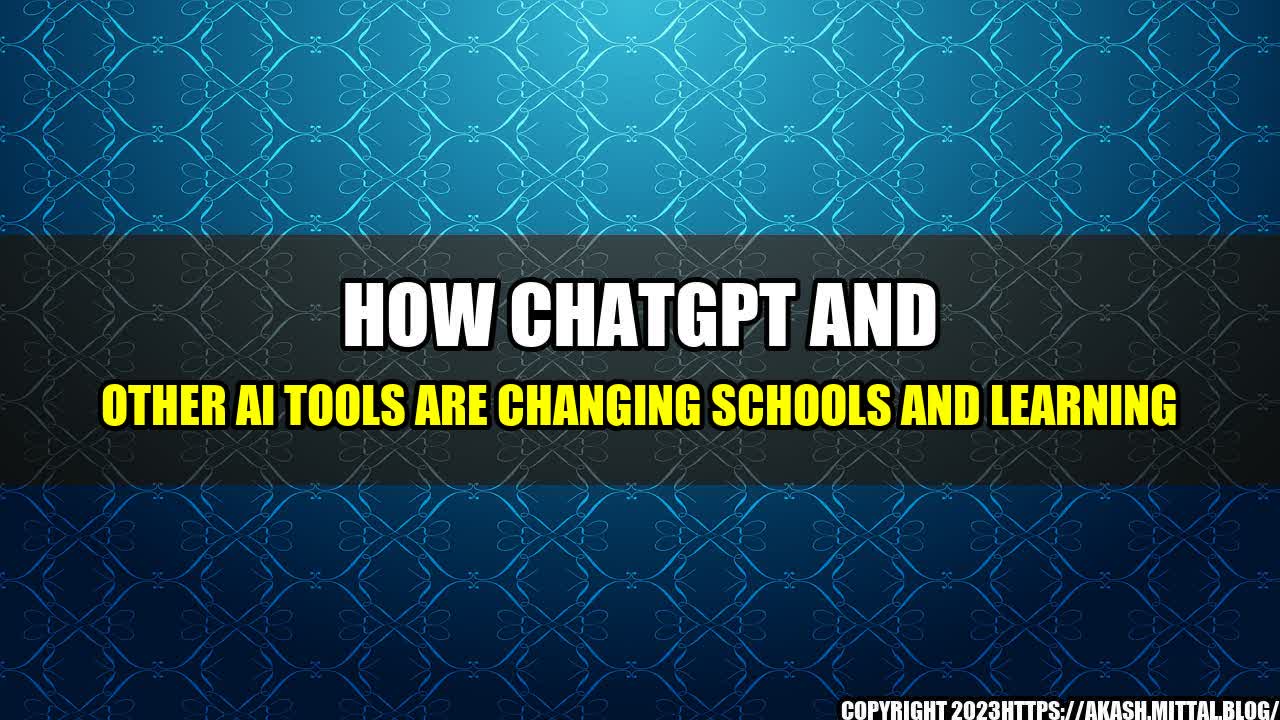From Frustration to Solutions: How AI Transformed Learning
For years, Sally struggled with math class, often spending hours on homework without grasping the fundamental concepts. Her teacher didn't have the time to provide her with individualized attention, and the traditional textbook only added to her confusion. Despite several attempts to seek out tutoring or online resources, Sally's grades continued to suffer.
However, Sally's luck changed one day when her teacher introduced the class to ChatGPT, a conversational AI tool designed to help students learn at their own pace with tailored explanations and feedback. With the help of ChatGPT, Sally's math grades improved dramatically, and she felt more confident and engaged in the subject. She was finally able to overcome her frustration and unlock her potential.
from Teachers and Students
Here are some personal anecdotes that illustrate the real-world impact of AI in education:
"ChatGPT has been a game-changer for my classroom. Students who used to struggle with reading comprehension are now able to understand complex texts and answer questions with ease. They're also more engaged and motivated than ever before." - Ms. Thompson, 7th grade English teacher
"I used to dread math class, but since using ChatGPT, I actually enjoy it. The AI tool gives me instant feedback and explanations that help me learn at my own pace. I feel like I'm really understanding the material now." - Sally, 9th grade student
"As a teacher, I'm always struggling to find ways to differentiate instruction and give all my students the support they need. But with AI tools like adaptive learning software, it's like having a teaching assistant who can provide each student with personalized attention and instruction." - Mr. Rodriguez, high school science teacher
Conclusion: Impact and Future of AI in Education
The future of education is deeply intertwined with the innovative and transformative technologies that are being developed. AI is one such tool that is changing the face of learning and teaching. Here are three key impacts of AI in education:
- AI can help close the achievement gap by providing personalized instruction and support to students who might otherwise fall behind.
- AI can free up teachers' time and resources by automating administrative tasks and grading, allowing them to focus on individualized instruction and building relationships with students.
- AI can help schools keep pace with the fast-changing demands of the modern world by providing cutting-edge tools and resources that can help prepare students for the challenges and opportunities of the future.
While AI is a powerful tool, it is not a silver bullet. It is important that educators continue to use thoughtful, evidence-based approaches to integrating AI into the classroom and ensure that these tools are used in ways that promote equity, access, and student learning outcomes.

Curated by Team Akash.Mittal.Blog
Share on Twitter Share on LinkedIn